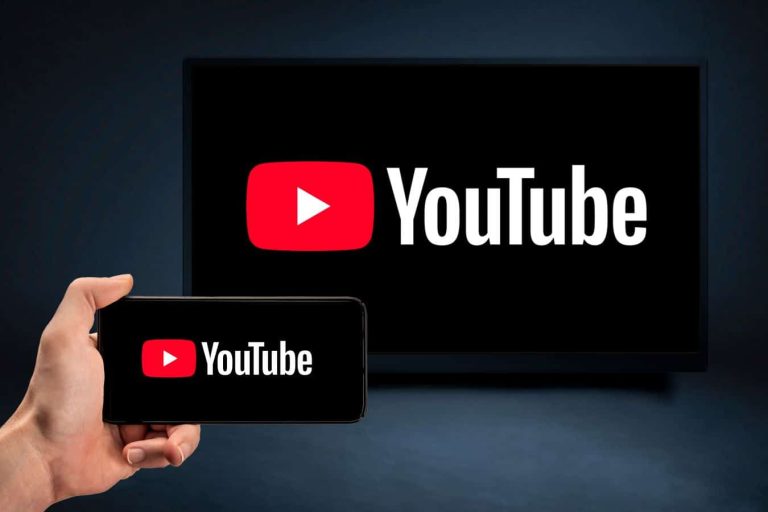Nigerian Filmmakers Turn to YouTube as Streamers Exit

For one explosive weekend in March, Nigerian social media platforms were awash with comments to Love in Every Word, a romantic comedy by Nollywood actress and filmmaker, Omoni Oboli, that enthralled audiences across Nigeria and its diaspora.
Oboli’s film is one of the most prominent examples of a fast rising trend in Nollywood, Africa’s largest film business by volume: a clear turn toward YouTube as the principal channel for new releases. This transformation has been accelerated by the departure of global streaming giants from the Nigerian market, driven mostly by profit concerns.
Oboli’s film is one of the most prominent examples of a fast rising trend in Nollywood, Africa’s largest film business by volume: a clear turn toward YouTube as the principal channel for new releases. This transformation has been accelerated by the departure of global streaming giants from the Nigerian market, driven mostly by profit concerns.
Did you know? You can comment on this post! Just scroll down
Omoni Oboli, who directed the movie, was taken aback by the response. On YouTube, the film received more than one million views in a single day and more than five million views in three days. Oboli declared, "God did it, and all I have is a grateful heart."
"I didn't anticipate that a movie on a YouTube channel would become so popular, questioning everything we know about Nollywood on all platforms," Oboli said. "God has a way of confusing the wise with the foolish things of this world."
Amazon Prime, the third-biggest streaming service in Nigeria at the time, closed its African operations in January 2024, laying off employees and stopping the purchase of local content. Netflix has also reduced the number of Nigerian original shows it commissions. The decision came down to a single concern, according to Jessica Abaga, a former executive at Amazon Prime Studios: "The very short answer is profitability." It almost seems like the business model is still not in their favor when it comes to the African market.
Additional pressure has come from international politics. The recent announcement by former U.S. President Donald Trump that he would impose a 100% tariff on films produced abroad alarmed film executives and caused share declines at major studios such as Netflix, Amazon, and Paramount.
Moreover, structural problems have pushed filmmakers online in their home country. There are only 102 movie theaters in Nigeria, a nation of 200 million people, according to the 2024 Nigerian box office yearbook released by Film One.
"I didn't anticipate that a movie on a YouTube channel would become so popular, questioning everything we know about Nollywood on all platforms," Oboli said. "God has a way of confusing the wise with the foolish things of this world."
Amazon Prime, the third-biggest streaming service in Nigeria at the time, closed its African operations in January 2024, laying off employees and stopping the purchase of local content. Netflix has also reduced the number of Nigerian original shows it commissions. The decision came down to a single concern, according to Jessica Abaga, a former executive at Amazon Prime Studios: "The very short answer is profitability." It almost seems like the business model is still not in their favor when it comes to the African market.
Additional pressure has come from international politics. The recent announcement by former U.S. President Donald Trump that he would impose a 100% tariff on films produced abroad alarmed film executives and caused share declines at major studios such as Netflix, Amazon, and Paramount.
Moreover, structural problems have pushed filmmakers online in their home country. There are only 102 movie theaters in Nigeria, a nation of 200 million people, according to the 2024 Nigerian box office yearbook released by Film One.

With rising inflation, cinema outings have become a luxury many can no longer afford.
Abaga noted that high ticket prices have shifted audience behaviour. “As ticket prices went up, people realised that the same money could be used to subscribe to a streaming service. Or they could just watch content on YouTube for free.”
Moreover, traditional distributors and streamers have often favoured established names, making it difficult for new talent to break in. This has created a bottleneck in the industry—one that YouTube bypasses entirely. “The biggest appeal YouTube has is the ease of putting your stuff there,” Abaga explained. “Streamers are particular about production value, production quality, story quality, all-around storytelling integrity. On YouTube, nobody cares. It’s your prerogative as a producer … no red tape, no restrictions, nobody’s stifling your creativity. But that also means there’s no quality control per se.”
Oboli concurred. “The audience is left to reward us or punish us for our efforts based on what we choose to produce. Failure and success are solely dictated by market forces, whereby the audience (customers) are again king.”
This new frontier is fast-paced and fiercely competitive. Oboli runs two production units and aims to release one film per week. Her YouTube channel, launched just a year ago, already hosts more than 60 titles.
However, this volume often comes at a cost. Some screenwriters are paid as little as ?150,000 (about £70) for full-length scripts, which are sometimes shot in just four or five days. Entire movies are filmed in Airbnbs, with changes limited to wardrobe swaps between scenes. After shooting wraps, actors and crew join in TikTok videos to promote the films. Post-production is often rushed, leading to bloopers—like crew members visible in final cuts—making it onto YouTube.
In January, Oboli had to pull one of her films from YouTube after discovering that her scriptwriter had sold the story to another producer who had already released a version in 2022.
Yet despite these challenges, the platform is fostering a new wave of creators and connecting them directly with audiences. Nora Awolowo, a 26-year-old filmmaker preparing to release her debut full-length feature Red Circle in cinemas this June, applauds YouTube-based filmmakers for democratising the industry. She sees her own challenge as “to reconnect to this audience by giving them quality.”
One persistent problem, though, is piracy. Bimbo Ademoye, a popular actor and producer, recently vented on Instagram after finding her latest movie reposted across more than 50 YouTube channels. “Some [pirates] even went as far as putting their watermark [and] their own soundtrack on the movie, claiming it to be theirs,” she said. “Some had as much as 200k views … and it’s painful because we thought the days of piracy were over.”
Another looming concern is the risk of YouTube changing its monetisation model or content rules, similar to what platform X (formerly Twitter) did in 2024. “Many people will have to go back to square one,” Awolowo warned. She believes the industry urgently needs to address its underlying issues, especially in distribution. “We have a structural problem,” she said. “Nobody wants to take risks. We are not addressing our problem in this industry, which is a distribution problem. How do we get to the grassroots? How do we engage the government? What are the policies?”
Veteran director Chris Ihidero, who helmed Fuji House of Commotion in the early 2000s, says that one solution rests in revitalising the Nigerian Television Authority (NTA), a once-prominent forum for original programming. In March, Ihidero stated, "Investing in high-quality content on free-to-air platforms is irreplaceable." "The NTA has failed to fulfill its statutory obligation in this regard."
Creators are experimenting, taking chances, and dreaming as Nollywood changes in real time; they are on less on established systems and more on their hard work, internet reach, and, frequently, pure faith.
Creators are experimenting, taking chances, and dreaming as Nollywood changes in real time; they are on less on established systems and more on their hard work, internet reach, and, frequently, pure faith.
Article Posted 20 Days ago. You can post your own articles and it will be published for free.
No Registration is required! But we review before publishing! Click here to get started

















